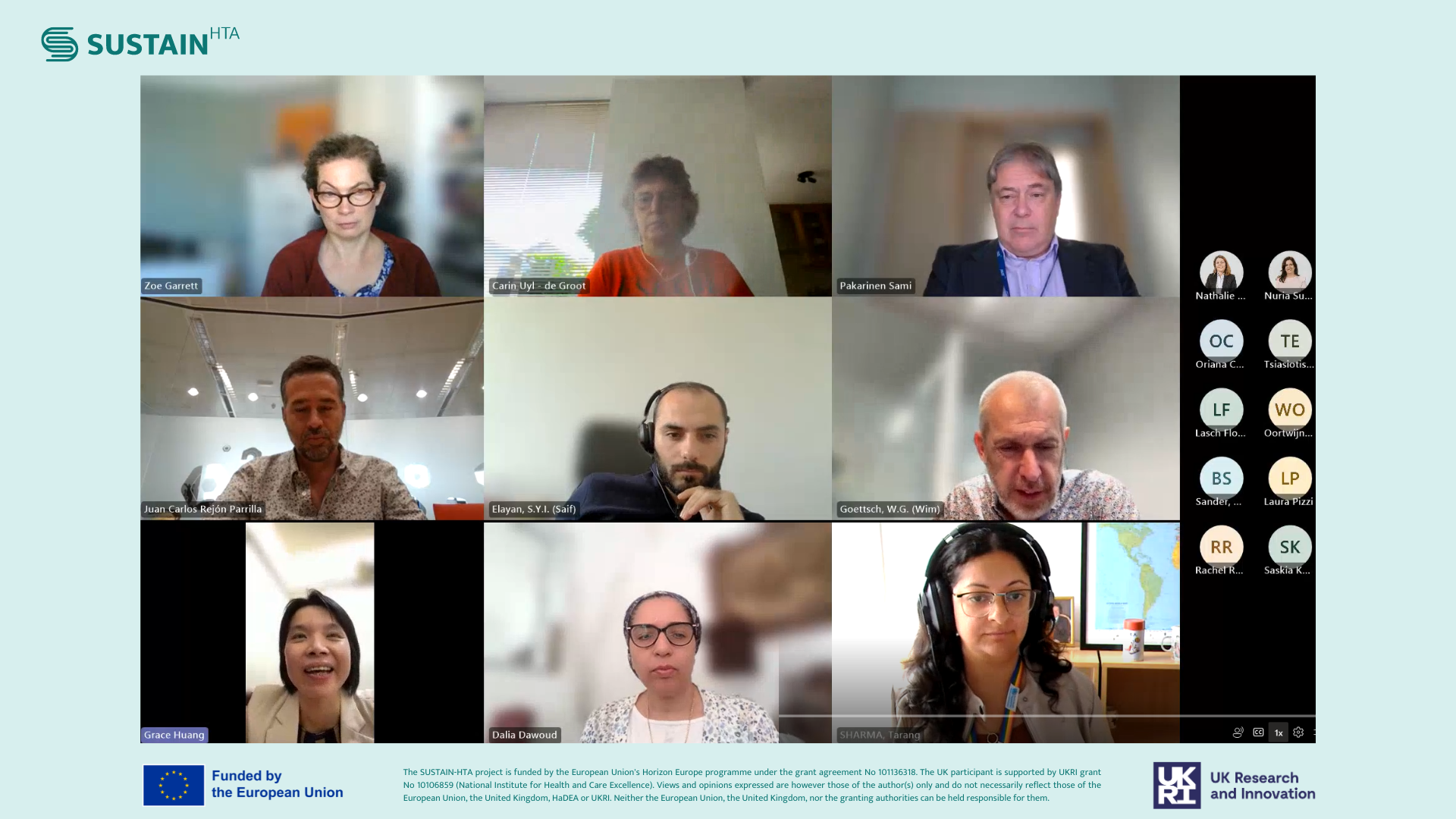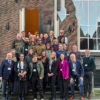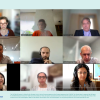The inaugural SUSTAIN-HTA Expert Forum took place on September 18, 2024, as an online meeting facilitated by project coordinator Wim Goettsch (Utrecht University & Zorginstituut Nederland) and Saif Elayan (Utrecht University).
International experts from initiatives developing new methods that could be valuable for Health Technology Assessment (HTA) shared developments in their field. There was a lively discussion about how SUSTAIN-HTA can contribute to the development and implementation of innovative methods into HTA practice.
External participants included Adriana Velazquez Berumen (WHO, Medical Devices), Beate Sander (Society for Medical Decision Making, University Health Network, Toronto ), Carin Uyl-de Groot (ASCERTAIN, Erasmus University of Rotterdam), Florian Lasch (European Medicines Agency), Grace Huang (HTAi, CDE/HTA), Juan Carlos Réjon Parrilla (ASSESS-DHT, AETSA – Andalusian Health Technology Assessment Department), Laura Pizzi (ISPOR), Rachel Richardson (Cochrane), Sami Pakarinen (ONCOVALUE, Helsinki University Central Hospital) and Tarang Sharma (WHO Europe, Novel Medicines Platform) as well as internal experts Oriana Ciani (Bocconi University), Dalia Dawoud & Zoe Garrett (NICE), Wija Oortwijn (Stichting Radboud Universitair Medisch Centrum), Nathalie Bofarull & Nuria Subirats (SYNAPSE), Emmanouil Tsiatiotis (Università Cattolica del Sacro Cuore) and Saskia Knies (Zorginstituut Nederland).
Discussions at the workshop revolved around how we can move beyond traditional approaches to get a fuller picture of the value of health interventions. Experts emphasized the need to consider broader impacts, such as the well-being of patients and caregivers, and to integrate equity into assessments. There was also a strong focus on improving statistical methods and exploring new pricing models to make evaluations more accurate and relevant. Another key point was the shift towards system-level thinking, looking at technologies across different stages of care and for various populations to help decision-makers plan more strategically.
A big takeaway from the Forum was the importance of balancing innovation with practicality. While new methods are essential for tackling complex issues, they need to be simple and transparent enough to be useful in real-world applications. AI and data science were seen as promising tools to speed up the HTA process, though there are still questions about their reliability. The workshop also highlighted the gap between academic research and practical use, emphasizing the need for stronger collaboration to ensure new methods can be effectively implemented. SUSTAIN-HTA was recognized as a key player in supporting these efforts, particularly by offering early guidance to other projects and fostering partnerships with organisations such as WHO.
Future Expert Forums will be held biannually, inviting a diverse group of experts to engage in these vital discussions and help shape the future of HTA methodologies. If you are interested in joining the discussions, contact the SUSTAIN-HTA consortium at info@sustain-hta.org.


